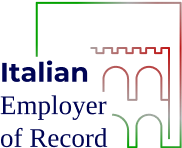31 March 2025
How to relocate to Italy with your partner while maintaining your job
Italy’s unparalleled charm, renowned cuisine, and vibrant culture make it one of the most attractive destinations for professionals considering a move abroad. For many, the prospect of relocating with their partner is both exciting and challenging, especially if you plan to maintain your current job while settling into life in a new country.
Moving to Italy involves more than packing your bags. From visa requirements and employment contracts to taxation and the local cost of living, several crucial factors must be addressed before you make the leap.
This guide explores these considerations, offering practical solutions and highlighting the role of an Italian Employer of Record in ensuring a smooth, legally compliant transition.
Understanding visa and residency options
If you’re a citizen of the European Union (EU) or the European Economic Area (EEA), you can relocate to Italy with minimal restrictions. However, if you’re a non-EU/EEA national, you’ll typically need a visa to legally live and work in the country. While a tourist visa may allow short visits, remote workers often require a longer-term residency permit or a specialised visa, such as Italy’s digital nomad visa.
Introduced to attract global talent, Italy’s digital nomad visa provides a legal pathway for remote professionals working for non-Italian companies. It’s specifically tailored for individuals who earn a stable income from abroad and meet certain financial thresholds. This visa ensures you can live in Italy while maintaining your foreign employment.
Working for an Italian employer typically requires a formal work permit and compliance with local labour laws. However, if your employment remains tied to a foreign company without an Italian entity, you may face additional challenges, including tax and social security obligations. Ensuring you meet all legal requirements is vital to avoiding potential complications down the line.
Legal considerations for working remotely from Italy
Yes, it is possible, but it requires careful planning. Italian labour laws govern employment contracts, tax obligations, and social security contributions. If you work remotely for a foreign employer, you must ensure that your employment arrangement complies with these laws.
Italian labour regulations often require formal employment contracts outlining working hours, benefits, and termination procedures. If you don’t have a proper contract in place, you risk violating local labour laws. Moreover, remote work regulations may specify certain health and safety obligations that employers must meet, even for employees working from home.
To remain compliant, you may need to adjust your employment structure. This could involve registering as a self-employed professional (libero professionista) or working through a third-party organisation that can handle local compliance requirements. Without proper alignment with Italian regulations, you risk penalties, legal disputes, and even losing your residency status.
Taxation and financial obligations for remote workers
Italy’s “183-day rule” is key to determining tax residency. If you spend over half of the year (183 days) in Italy, you’re generally considered a tax resident. As a tax resident, you must report and pay taxes on your global income, not just the income earned within Italy.
Italian residents are subject to progressive income tax rates, with higher earners paying a larger percentage. Remote workers earning from foreign companies must ensure that income is accurately reported, proper deductions are made, and taxes are paid on time.
Understanding Italy’s tax brackets and leveraging any double taxation agreements (DTAs) between your home country and Italy can help reduce your overall tax burden.
Beyond income taxes, you’ll need to address social security contributions. Working remotely for a foreign employer may still require paying into Italy’s social security system, known as INPS (Istituto Nazionale della Previdenza Sociale). This ensures access to benefits like healthcare and pensions. Double taxation treaties can also help you avoid paying social security contributions twice, provided your home country has an agreement with Italy.
Challenges and solutions for relocating with a partner
If your partner is not an EU/EEA national, their residency status will depend on your visa type and employment arrangement. Certain visas, such as Italy’s family reunification permits, allow spouses or long-term partners to join you in the country. It’s essential to verify the eligibility criteria and application process to ensure they can stay legally.
In some cases, partners may need a separate work visa to find employment in Italy. While EU/EEA nationals can work freely, non-EU/EEA partners often face restrictions. It will be important to research visa categories and understand whether local employment opportunities align with their qualifications.
Relocating as a couple means managing joint expenses, budgeting for housing, and potentially supporting one partner during their job search. Discussing financial goals, exploring housing options that fit your budget, and planning for healthcare costs will ease the transition.
Cost of living in Italy: what to expect
Italy’s cost of living varies by region. Major cities like Rome and Milan tend to be more expensive, especially for housing. Smaller towns and rural areas offer more affordable options, but may lack some amenities.
On average, monthly rent for a one-bedroom apartment in a city centre ranges from €700 to €1,200, while utilities and groceries will add to your monthly costs.
Italy’s public healthcare system provides high-quality care but may not cover all services. Many expats opt for private health insurance to ensure quicker access to specialists and more comprehensive coverage. Researching local healthcare providers and understanding the costs involved will help you prepare financially.
How an Italian Employer of Record can help professionals relocate and work legally
An Employer of Record (EOR) is a third-party organisation that acts as the legal employer for professionals working in a foreign country. For expats relocating to Italy, an EOR can simplify compliance by handling employment contracts, payroll, and tax obligations on behalf of the foreign company. This lets you focus on your work and personal transition rather than learning complex regulations.
Here are the benefits of using an EOR:
- Legal compliance: An EOR ensures your employment complies with Italian labour laws, tax codes, and social security contributions.
- Access to benefits: By working through an EOR, you can receive employee benefits such as healthcare, paid leave, and pension contributions.
- Reduced administrative burden: The EOR manages payroll, tax filings, and employment paperwork, so you can avoid time-consuming bureaucracy.
Who should consider an EOR?
- Expats who want full employment benefits while working remotely.
- Professionals working for a foreign company that lacks an Italian legal entity.
- Freelancers seeking a structured employment option with all the benefits of being a regular employee.
For example, John, a software developer from Canada, wanted to move to Italy with his partner while keeping his job at a US-based company. Without a local entity in Italy, John’s employer faced legal and tax compliance hurdles, and John worried about his residency and work permits. They started working with an Employer of Record, which allowed John to be legally employed in Italy while maintaining his role.
The EOR handled all employment contracts, payroll, and tax filings, ensuring compliance with Italian labour laws. This arrangement provided John with the legal structure he needed and gave his employer peace of mind, allowing him and his partner to start their new life in Italy stress-free.
Move to Italy with your partner
Relocating to Italy with your partner while maintaining your job can be a fulfilling and life-changing experience. However, it requires careful planning and a thorough understanding of visa requirements, tax obligations, and employment laws. Contact us today to explore EOR services and prepare for the financial and logistical aspects of the move. You can enjoy the benefits of living in Italy while continuing to build your career.



